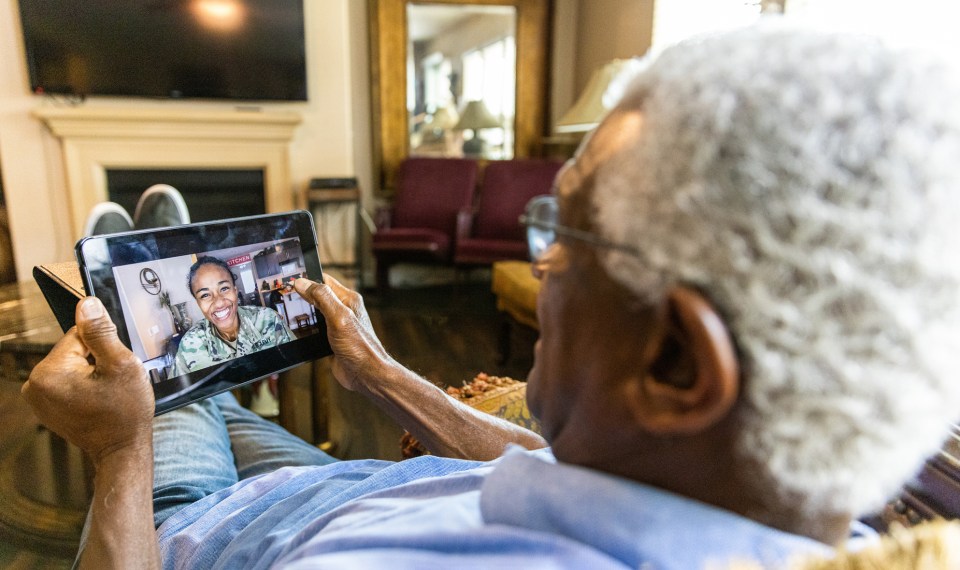The holiday season is typically characterized as the most wonderful time of the year. There are gatherings with family and friends, gift exchanges and holiday sweets and treats. For many though, the season is also a reminder of times past and loved ones lost.
The holiday blues are very real for many, but there are ways to combat those feelings. Elizabeth Bilderback, a counselor at Encompass Health Rehabilitation Hospital of San Antonio, offers her tips on how to navigate the holiday season, as well as advice on what to do when your holiday blues are more than just seasonal and it could be time to seek professional help.
Manage Expectations
Your favorite holiday memories may include your entire extended family gathering around the table, and you may want to recreate that same picturesque setting. It’s important to keep in mind that things may look a little different as you and your family get older.
Adult children may have moved away and are starting their own holiday traditions, and traveling longer distances may not be as easy as it once was. Maybe you have a smaller celebration, or even consider moving it to another time of year, so you can all be together.
“Be flexible. If you can’t gather on the holiday, set aside one time a year where you can all be together,” Bilderback said. “One year, we celebrated Thanksgiving on a Saturday. You don’t have to be so rigid.”
A key practice Bilderback shares with her patients is the importance of reframing your thoughts. Your thoughts about a situation, not the situation itself, create your feelings, she said. Changing your thoughts therefore can change how you feel.
If you are no longer able to gather with family and participate in traditional holiday festivities, it’s natural to feel sad and isolated. However, focusing on positive thoughts can help minimize those negative feelings and keep them from becoming overwhelming.
It’s important to note that this isn’t a means of dismissing feelings of isolation or sadness, Bilderback said, as those could be very real. However, reframing thoughts can help you focus on the positive.
Missing Lost Loved Ones
The pain of losing a loved one is very real. Even if it’s been years since a family member or friend passed, the holidays can serve as a reminder of those no longer with us.
“It could be a parent or a spouse—anyone you were used to being with,” Bilderback said. “You have to be able to accept the fact that it’s OK to be sad, but also think about what that loved one would want for you. Would they want you to be sad?”
Bilderback suggests setting aside time to grieve. “Recognizing that it’s OK can help you deal with it,” she added. “Maybe set aside time in the morning or night to be sad but not the whole day.”
Helping a Loved One with Holiday Blues
If you notice that a loved one is struggling with holiday blues, there are steps you can take to help them feel supported and loved, even if you can’t be there to celebrate with them. Bilderback suggests the following:
- Zoom or Facetime them in, so they can take part in the holiday from a distance
- Send flowers or a centerpiece or even a small Christmas tree or decoration if they are no longer able to have or do their own
- Order them a holiday meal to be delivered to their place of residence
Don’t be Afraid to Ask for Help
When people become depressed, chemicals in their brain change. Once that happens, Bilderback said, it is hard for your body to fix that on its own. That’s where medication may help.
Don’t be afraid to talk to your doctor if you feel that your holiday blues seem heavier than normal.
“There’s nothing wrong with seeking help, just like we seek help for other things,” she said. “If you regularly get holiday blues, and they are getting worse or last beyond the holidays, don’t be afraid to talk to your doctor.”
The content of this site is for informational purposes only and should not be taken as professional medical advice. Always seek the advice of your physician or other qualified healthcare provider with any questions you may have regarding any medical conditions or treatments.



